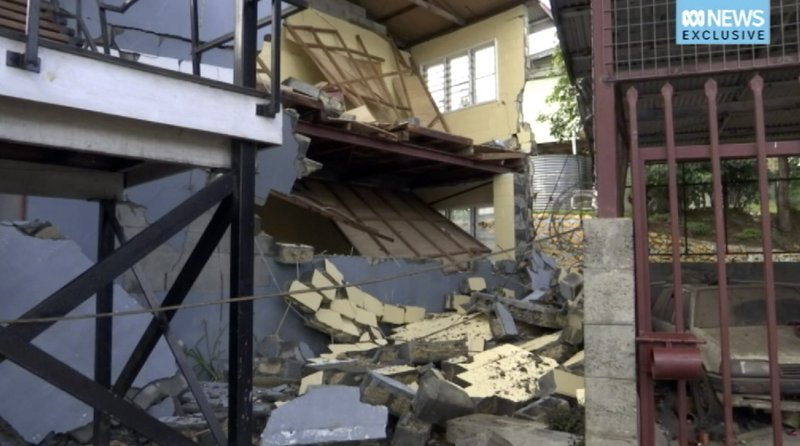6.7 aftershock rocks Pacific islanders
WELLINGTON, New Zealand -- An earthquake that struck Papua New Guinea last week has left at least 55 people dead, and authorities fear the toll could exceed 100, as survivors faced more shaking early Wednesday from the strongest aftershock so far.
Southern Highlands Gov. William Powi said people were traumatized from the disaster and ongoing aftershocks. The latest large temblor was a magnitude-6.7 quake that struck just after midnight Tuesday.
It was the strongest shake since the Feb. 26 magnitude-7.5 quake that destroyed homes, triggered landslides and halted work at four oil and gas fields.
The central region where last week's quake struck is remote and undeveloped, and assessments about the scale of the damage and injuries have been slow to filter out. Powi said he didn't know if the latest aftershock had caused more injuries or damage, but he said it had added to the distress people were feeling.
"It is beyond the capacity of the provincial government to cope with the magnitude of destruction and devastation," he said. "Our people are traumatized and finding it difficult to cope."
Death reports are still coming in from remote places, he said, adding that he feared the death toll would rise to over 100.
A spokesman at the National Disaster Center said the official death toll is currently estimated at between 55 and 75, although it doesn't yet have firm numbers.
Pope affirms sainthood for Salvadoran
VATICAN CITY -- Pope Francis has cleared the way for Archbishop Oscar Romero to be made a saint, declaring that the churchman murdered by El Salvador's rightist death squads for standing up for the poor and oppressed should be a model for today's church.
Francis signed a decree Tuesday confirming a miracle attributed to Romero's intercession. On the same day, Francis approved a miracle for another important figure for the 20th century Catholic Church, Pope Paul VI, the Vatican said Wednesday.
No date was set for either canonization. Vatican officials have previously said Paul VI would likely be canonized in October, during a bishops gathering.
The Vatican official who spearheaded Romero's sainthood cause, Archbishop Vincenzo Paglia, said he hoped the two would be declared saints together in October, saying a joint canonization would give Catholics a "burst" of energy and example of the need to live one's life for others.
Romero was gunned down by a government-aligned death squad on March 24, 1980, as he celebrated Mass in a hospital chapel. The country's military dictatorship had vehemently opposed his preaching against the army's repression of the poor at the start of the country's 1980-1992 civil war.
News of his pending canonization was met with celebration in San Salvador, where President Salvador Sanchez Ceren tweeted that Francis' decision "fills us with immense joy."
Gun-smuggling ring busted in Europe
BERLIN -- European police have cracked an international weapons-smuggling ring, with police saying the group traded firearms in Austria, Germany, Switzerland and France.
Rudolf Welte of Rottweil police in southern Germany said Wednesday that the gang's operations came to light after an investigation in Toulouse, France.
Welte said simultaneous raids in the four countries in November led to several arrests and the seizure of large numbers of firearms.
Uta Bachmann of the domestic intelligence service in Austria's western state of Vorarlberg said more than 150 firearms and hundreds of pounds of ammunition were seized in that country alone.
Speaking at a joint news conference in Bregenz, Austria, investigators said the investigation wasn't terrorism-related.
Guatemalan soldiers' police role to end
GUATEMALA CITY -- Guatemala's president said Wednesday that he will withdraw army troops from day-to-day law enforcement duties over accusations that soldiers were involved in corruption and criminal activities.
President Jimmy Morales said that starting March 31, soldiers will be deployed to secure border areas and other strategic points.
"I want to guarantee the public that we are not diminishing the army, nor are we going to diminish it. We are going to post it strategically when it is needed ... in public safety, disasters, food and public health efforts," Morales said while accompanied by army officials.
Successive administrations have kept the military on the streets, saying they were needed to fight well-armed gangs and drug cartels.
Critics have long said the army's role in policing violated the 1996 peace accords that put an end to 36 years of civil war.
A Section on 03/08/2018
